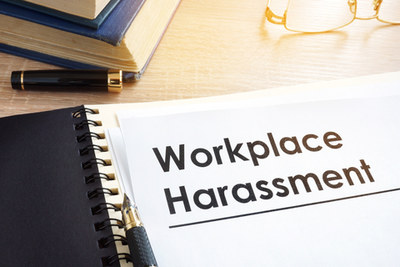
New Legislation – Bill SB 820
Governor Brown in September signed Senate Bill 820, which “prohibits the inclusion of certain provisions of confidential settlements and nondisclosure agreements in the settlement of sexual harassment cases.” Specifically, “sexual harassment settlement agreements cannot include provisions that prohibit the disclosure of the underlying factual information that relates to claims of sexual assault, sexual harassment, sex discrimination or retaliation.”
The new laws that take effect January 1, 2019, also state that employers will be protected when statements are required concerning the complaints of sexual harassment. Currently, employers are legally required to investigate claims of sexual harassment, but at the same time there is a possibility that they can be sued for defamation by the alleged harasser. This new bill means that employers can participate in investigations of sexual harassment by administrative bodies, investigate claims of harassment, and notify prospective employers about a sexual harasser without the fear of liability.
However, the bill hasn’t gone so far as to restrict mandatory arbitration.
Mandatory Arbitration Agreements
Mandatory arbitration means that workers cannot pursue a claim in court if their rights have been violated—such as sexual harassment. Instead they are required to follow arbitration agreements that overwhelming has favored employers.
More than 50 percent of nonunion, private-sector employers have mandatory arbitration procedures, and 65 percent of large companies with over 1,000 employees have them, according to the Economic Policy Institute (EPI). This adds up to about 60 million workers in the US. The EPI also reported on data showing that since the early 2000s, the share of workers subject to mandatory arbitration has more than doubled.
Thanks to the #metoo movement, employers are revising their arbitration clauses. Microsoft took the lead last December when it eliminated mandatory arbitration clauses for sexual harassment claims among its employees. It also advocated for federal legislation to do the same across the workforce. Then Google stepped up, but not until thousands of workers protested big payouts for executives accused of harassment and other misbehavior. Google workers demanded an end to mandatory arbitration in harassment and discrimination cases. Now, arbitration is optional.
READ MORE CALIFORNIA LABOR LAW LEGAL NEWS
As reported by Bloomberg, Google committed to the following:
• Making arbitration in sexual harassment and assault claims optional.
• Providing regular, detailed reports about the number of harassment claims and whether they resulted in people being fired.
• Publishing an internal guide to how harassment investigations work at the company.
• More support for people reporting harassment, including the right to bring a colleague along with them to meetings with the human resources department.
• Managers will be expected to discourage “excessive” alcohol consumption at work-related events.
• Skipping sexual harassment training will affect employees’ performance reviews.
